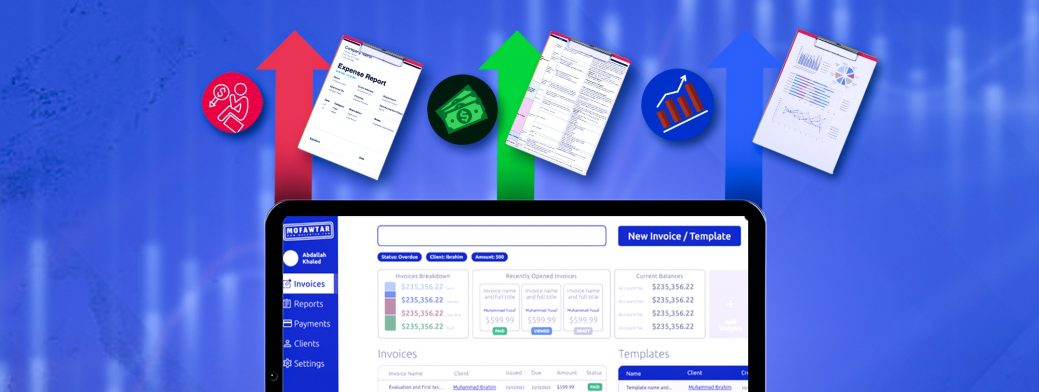Introduction
Digital transformation represents one of the key pillars for achieving sustainable economic and social development in Egypt, particularly under Egypt’s Vision 2030, which aims to achieve financial inclusion, enhance the efficiency of government services, and stimulate economic growth. The Egyptian tax system is among the sectors most affected by digital transformation, as activating its mechanisms can improve tax system efficiency, reduce tax evasion, and achieve tax fairness.
The Importance of Digital Transformation for the Egyptian Tax System
- Enhancing Efficiency of Tax Operations:
- Digital transformation contributes to automating processes such as tax registration, filing returns, and collection. This reduces the time and effort required, improving taxpayers’ experience.
- Increasing Transparency and Reducing Tax Evasion:
- Digital transformation enables more accurate tracking of economic transactions through electronic data recording, reducing opportunities for tax evasion and integrating informal economic activities into the formal economy.
- Achieving Tax Fairness:
- Digitization helps ensure equal treatment for all taxpayers by providing unified databases, reducing disparities among taxpayers.
- Enhancing the Business Environment:
- Digital transformation reduces administrative burdens and complex procedures, encouraging investment and attracting small and medium enterprises to the formal system.
Digital Transformation as a Tool to Reduce Tax Evasion
- E-Invoicing:
- E-invoicing is one of the main tools of digital transformation, requiring businesses to electronically record all transactions, making it harder to conceal revenues.
- Integration with Government Databases:
- Electronic linking between the tax authority, banks, customs, and supply agencies allows for comprehensive and accurate data collection.
- Data Analysis Technologies:
- Using artificial intelligence and big data analytics helps detect tax evasion patterns and quickly identify risks.
- Reducing Cash Transactions:
- Digital transformation promotes the use of electronic payment methods, minimizing cash transactions that are difficult to track.
Challenges of Activating Digital Transformation
- Infrastructure:
- Egypt needs to improve its digital infrastructure to ensure reliable and fast connectivity nationwide.
- Awareness and Training:
- Activating digital transformation requires educating taxpayers and tax authority employees on digital tools and how to use them effectively.
- Initial Costs:
- The initial cost of adopting technology can be high, requiring significant investment from the state.
- Tax Culture:
- Changing the prevailing culture of tax evasion requires building trust between citizens and the tax authority.
Digital Transformation and Egypt’s Vision 2030
Egypt’s Vision 2030 is a comprehensive framework for economic and social transformation, where digital transformation plays a central role in modernizing the tax system. This vision aims to:
- Increase tax revenues to support development plans.
- Improve Egypt’s ranking in international indices like the Ease of Doing Business Index.
- Enhance trust between taxpayers and the government.
Recommendations for Activating Digital Transformation in the Tax System
- Improving Digital Infrastructure:
- Provide advanced infrastructure to support digital transformation and ensure service continuity.
- Integration Among Government Institutions:
- Facilitate data exchange between different government entities to support the tax system.
- Launching Awareness Campaigns:
- Raise awareness among taxpayers about the importance of digitization and how to benefit from it.
- Providing Incentives for Taxpayers:
- Offer incentives, such as reduced administrative fees, to taxpayers who comply with digital systems.
Conclusion
Activating digital transformation is a crucial tool for improving the efficiency of the Egyptian tax system, helping to reduce tax evasion and enhance tax fairness. By integrating technology with tax administration, Egypt can take significant steps toward achieving Vision 2030, building a sustainable economy that benefits all stakeholders.
